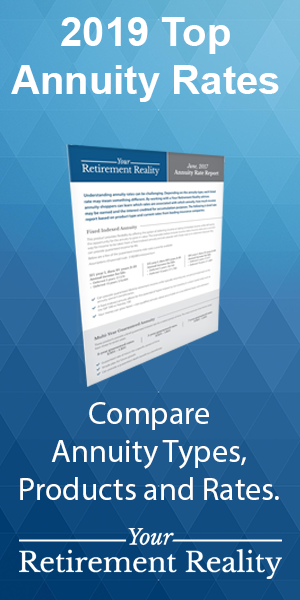If you’ve ever been to Las Vegas, you’ve seen risk-takers in action. All those eager bettors, plugging tokens into slot machines and imploring blackjack dealers to “Hit me again.”
But at least when you walk into a casino and trade bills for chips, you know you’re taking a risk. When you step into your realtor’s or human resources office, it’s not so easy to tell. Did you lock in a good mortgage rate? Do the choices in your company’s 401(k) plan expose you to too much volatility? Do you know the percentage of fees that are being charged?
As you get closer to retiring, it’s important to understand retirement income planning risks to know how much of your retirement savings is guaranteed, and how much is subject to the changes of the market.
You may be able to count on Social Security to supply some income stream during retirement. But you may not want to run the risk of being unprepared should there be an economic recession when you are in your 70s. Such an event, when you’re dependent on a fixed income, could force you to draw down your principal from your IRA or 401(k) earlier than expected.
Know Your Risks
That’s why it’s a good idea to know the level of risk involved in the products you’re choosing for retirement income, and to know the landscape of retirement income planning today. According to AARP, many financial planners suggest a three-bucket approach to retirement asset mixes: 35% for cash, 35% for bonds, and 30% in stocks.
But shouldn’t your risk comfort level—conservative, moderately aggressive or aggressive—also influence those allocations? Cash can provide an income stream, but may be better-suited to cautious savers due to the low growth potential.
Stocks and any other investment tied to stock market performance may offer a higher level of potential returns but are non-guaranteed and subject to the volatility of the market. Therefore, stocks and other investments may not be ideal for conservative, risk-averse investors.
You don’t know your risk tolerance level unless you take a risk assessment. And even then, you should to take it again every five years or so, because your results often change as you near and enter retirement.
Your Retirement Reality Tip
Consult a licensed professional to review your retirement income strategy. According to recent research financial acuity drops by about a percentage point every year after age 60, a time when we may have fewer opportunities to rectify missteps or make changes.
13982
How Age Affects Financial Prowess
Financial acuity drops by about a percentage point every year after age 60, according to a study by researchers at Texas Tech and the University of Missouri-Columbia, as reported by AARP. Counter-intuitively, financial confidence actually increases as we age, meaning we feel smarter—but according to the study, we aren’t.
Perhaps you know older friends or relatives who well-meaningly invested in legitimate-sounding business ventures that never materialized, or, worse, turned out to be schemes. The Bernie Madoff tragedy is a well-publicized example, but many times cases of fraud happen on a much smaller, neighborhood scale.
Often, your spouse or loved ones know your weaknesses better than you do yourself. Consult with them about which areas may be potential blind spots. Consider people’s motives and weigh them objectively. In addition to your family, a licensed professional can also help evaluate decisions before you make them. As Ben Franklin said, “An ounce of prevention is worth a pound of cure.”
14060

